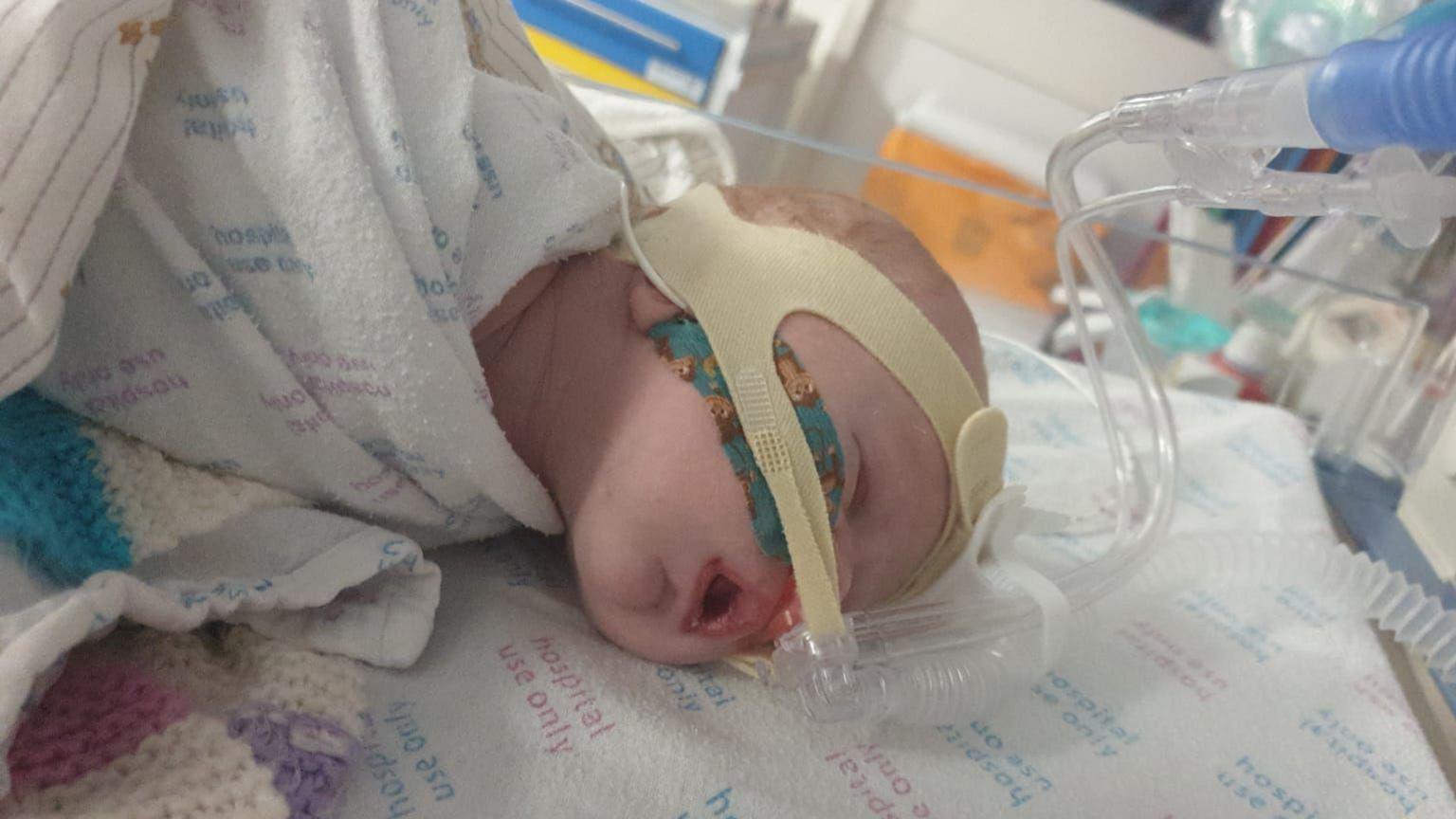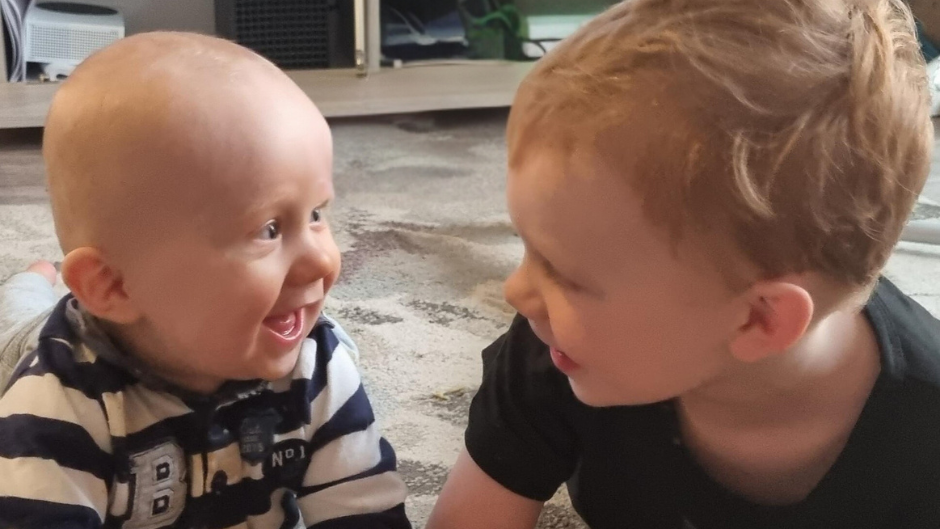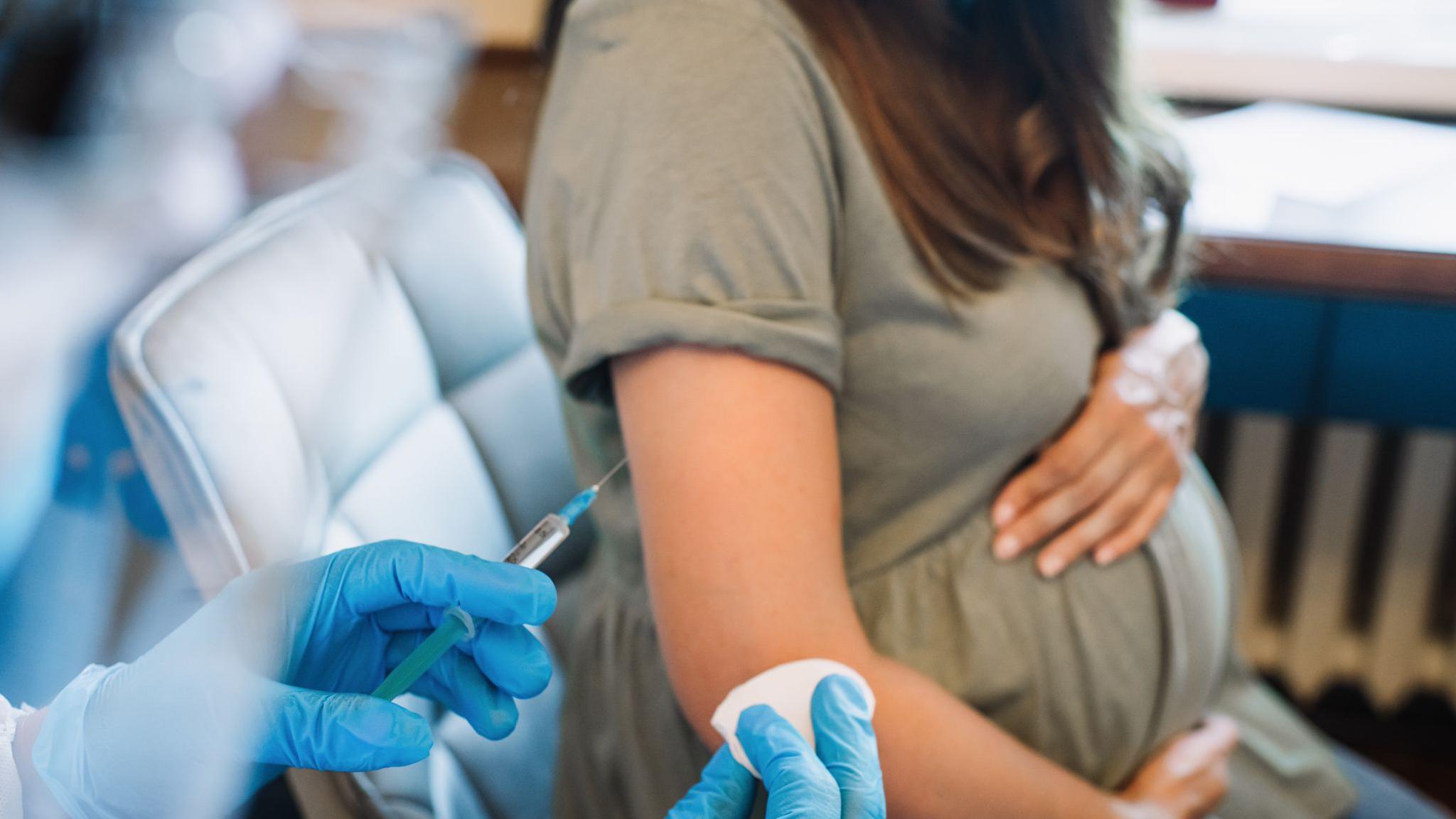Mum's warning after newborn almost died of virus

Harry Potts had "turned grey" and was fighting for his life after he contracted a respiratory virus
- Published
A mother whose newborn son almost died after contracting a respiratory virus is warning others not to "underestimate" its symptoms.
Just two weeks after Gemma Potts gave birth to her son Harry in December 2022, he was fighting for his life in an intensive care unit.
He had contracted respiratory syncytial virus (RSV) which is a common cause of colds but can make babies and older adults "seriously ill", according to the NHS.
Ms Potts, who works for Sherwood Forest Hospitals NHS Foundation Trust in Nottinghamshire, is now urging those who are pregnant to accept a free vaccine for the virus that was made available from 1 September.
The trust said studies had shown having the vaccine during pregnancy was "much safer than the risk of your baby contracting the virus".
'Devastating effect'
Ms Potts, from Alfreton in Derbyshire, said she would have "jumped at the chance" if she had the opportunity to have the vaccine when she was pregnant.
The mother of two said she remembered being told to prepare for the worst when Harry was first admitted.
After 10 days of being in intensive care, her son survived, but the experience left a significant impact on his loved ones.
"The experience has had such a devastating effect on our family," the 31-year-old said.
"It is something we will never get over and two years down the line, we still find it hard to move on from the trauma."
Harry's older brother Thomas still worries when his younger sibling becomes unwell.
The toddler is still under ongoing investigation for issues with his chest and airway after contracting the virus three more times and being hospitalised on other occasions.
Ms Potts, who works as a recruitment assistant at the trust, said: "It is so important that people understand how bad this virus can be.
"I hope that no child or family goes through what we went through, and I truly believe that this vaccine will be a lifesaver for many babies."

Ms Potts said her older son was also badly impacted by his baby brother's illness
According to the UK Health Security Agency (UKHSA), RSV accounts for about 30,000 hospitalisations of children in the UK each year, and between 20 and 30 infant deaths.
This is because babies have small airways and have not yet built up immunity to the virus, and this can lead to severe bronchiolitis which in some cases can be fatal, the UKHSA said.
The trust said the vaccine was recommended from 28 weeks of pregnancy but could still be administered later in pregnancy, and encouraged people to speak to their midwife or GP if it had not been offered one.
Claire Allison, maternity matron for the trust's outpatient services team, said taking up the vaccine would "help protect their baby in the first few months of life by boosting the mother's antibodies, which are passed over to the unborn baby via the placenta".
Get in touch
Tell us which stories we should cover in Nottingham
Follow BBC Nottingham on Facebook, external, on X, external, or on Instagram, external. Send your story ideas to eastmidsnews@bbc.co.uk, external or via WhatsApp, external on 0808 100 2210.
- Published2 September 2024
